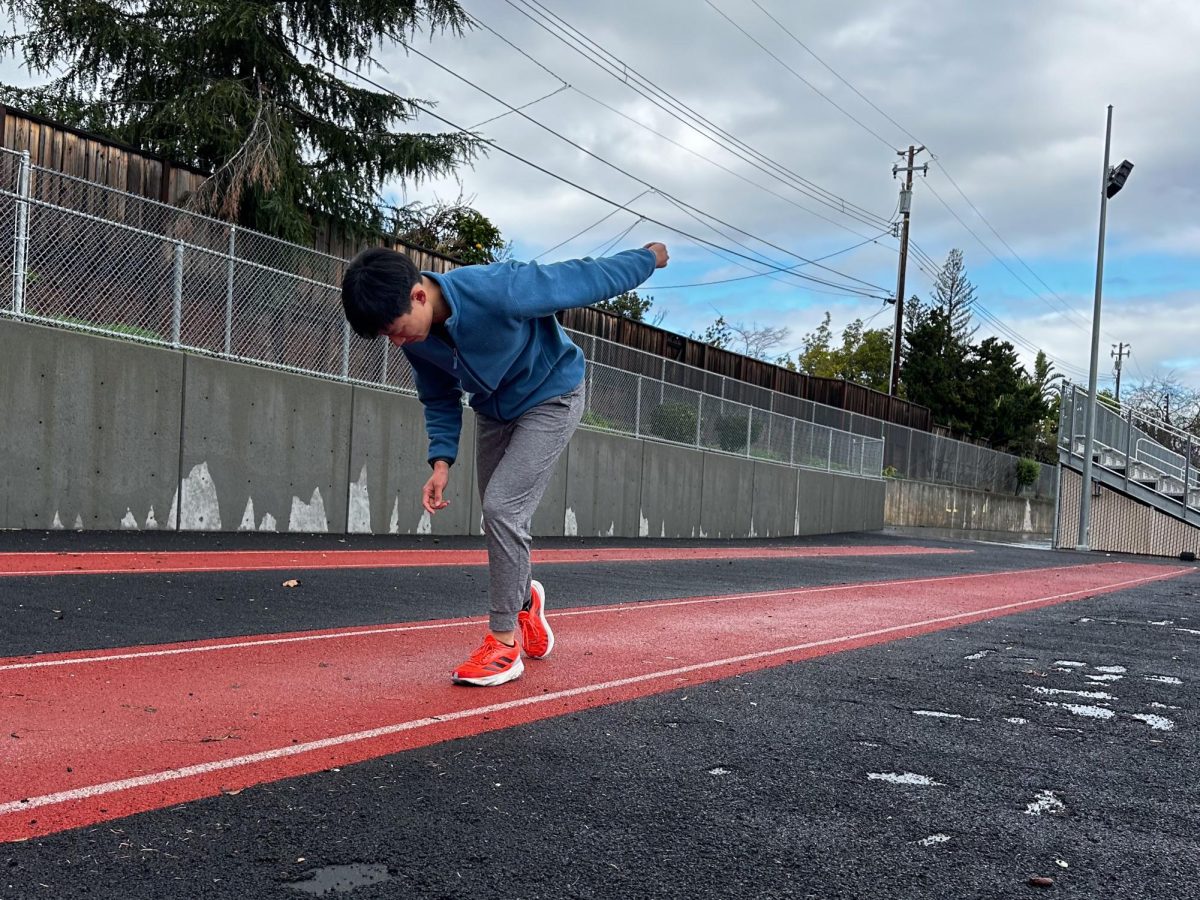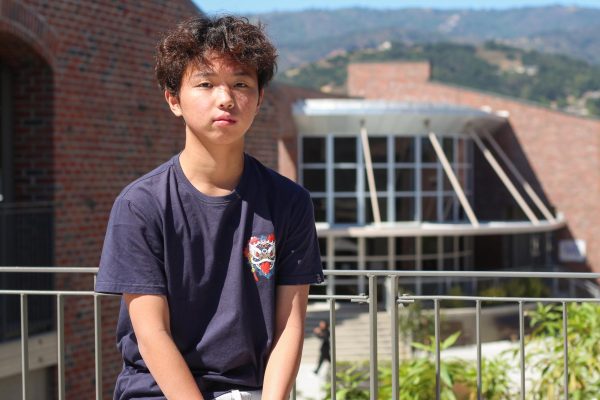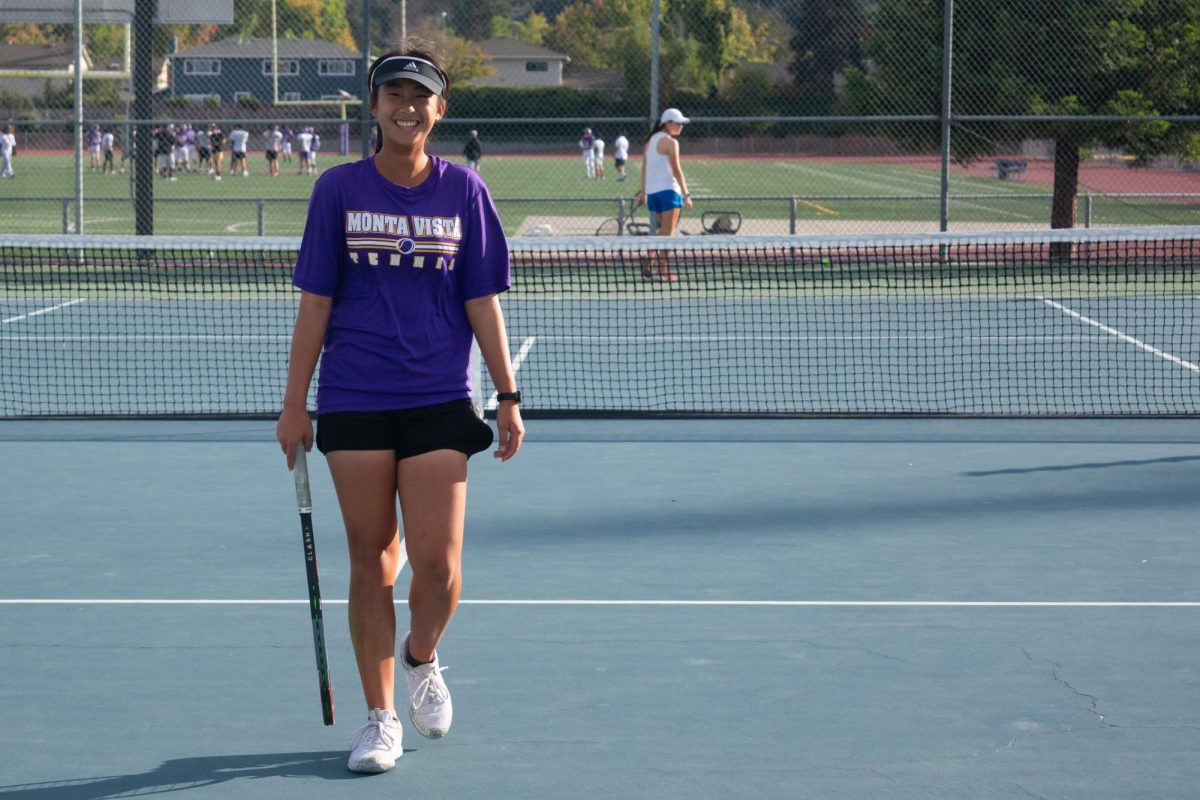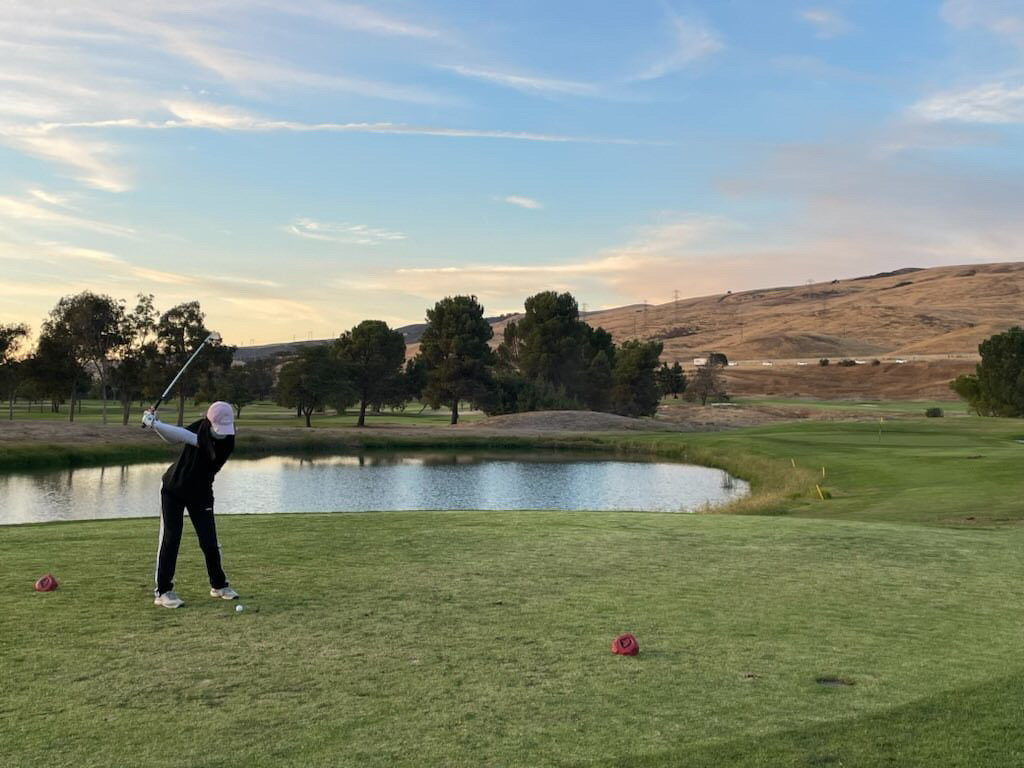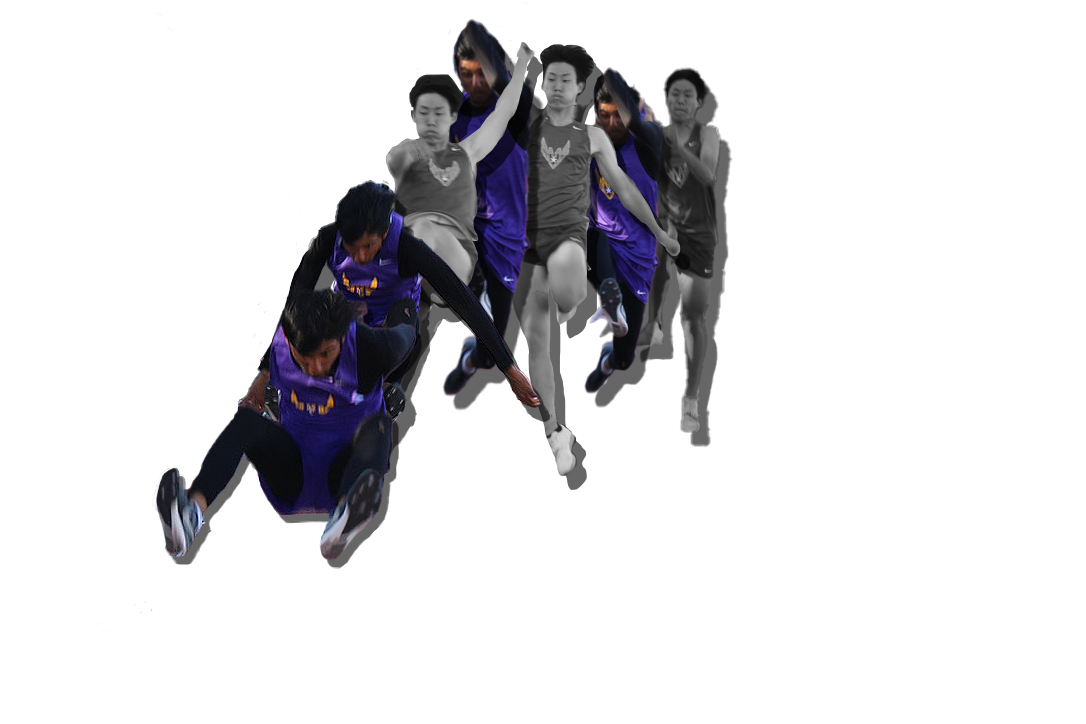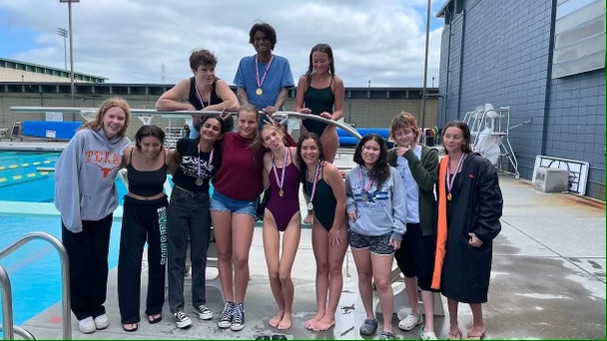BZ: Hello everyone, my name is Benjamin Zhang and welcome to Episode 15 of Time Out! Each episode, we will be diving into the sports scene here at MVHS and exploring the journey of athletes from various sports. In this episode, I’m joined by junior Darren Lin, who competes in the long jump for the MVHS track and field team. Let’s jump right into it.
BZ: When did you start track and field?
DL: I started track and field when I was in sixth grade. I wanted to because I saw people long jumping and I thought it was really cool.
BZ: What were your first impressions after you did it?
DL: My first impressions — at least in middle school — were ‘this is extremely easy.’ Once I went to high school, I realized that if you want to work very hard, the sport is as hard as you want to make it. So if you want to just try harder, it can be near impossible, but if you just want to get by every day it’s extremely easy.
BZ: What events did you do first?
DL: I did long jump, that’s it. My coach saw that I was long jumping pretty well and I have some potential there.
BZ: What made you want to continue doing track and field?
DL: At the big meets you would see these people who are like top five in the state and you just see how hard they are trying and how far they are going and it just kind of motivates you to continue and try to achieve what they achieved. I just remember looking at the Kennedy Middle School leaderboards and I just saw that this guy was going really far and I was like, ‘I want to be there’ and so I worked to achieve that.
BZ: How often do you train for track?
DL: Six days a week.
BZ: Could you describe a typical day at training?
DL: So typically we would do a little warm-up jog and then we would do all our drills, and like some stretches, and then after that we would probably do a sprint workout or something to focus on speed or maybe we can focus on technique. And then after that, we would go to the weight room and focus on power movements or power cleans and stuff that increase your power rather than your overall strength. I think the hardest thing is definitely working on the technique because you can run as hard as you want, but then, if your technique is bad, it just messes up and technique is the hardest thing to fix. It always is. I like to record myself and then I’ll go through in slow motion and see where I can fix it and then I’ll focus on one thing at a time and fix that and then see what needs to be fixed the next time and then keep going until everything gets better.
BZ: How do you balance track with school and other responsibilities? Because like you said, it’s a long time commitment.
DL: So typically, I try to get all of my homework done during my free period, or at least when I get home after track, I try to start my homework as soon as possible. And it’s worked for me pretty well, I’ve been able to sleep eight to ten hours every day.
BZ: What’s your favorite aspect of doing track and field?
DL: I think it’s just because track and field is just all about numbers. You can see your improvement. Every month you can see I jumped farther by how much and it kind of puts a value on your improvement, it puts a number behind it.
BZ: How do you mentally prepare yourself for jumps before the competition happens?
DL: Before the competition, typically, I’ll just try to cool down and not think about anything else and just stay focused on the jump. And when I’m jumping, I kind of have tunnel vision and only think about doing well and try to remove all the distractions.
BZ: Do you ever get nervous before you do jumps?
DL: Yes. I’m nervous a lot of the time and that’s probably not a good thing, but that’s just how it is.
BZ: Have you always been nervous or was it a result of higher competition after you got into high school?
DL: The better you get, you realize that there are so many people out there that are better than you and once you go to these bigger meets with better people you kind of see that. You want to be improving and or you want to be doing well so it kind of puts a lot of pressure on you and it makes you nervous.
BZ: So you have obviously gone to a lot of these meets. What would you say is your favorite memory?
DL: My favorite memory would be when I was at this meet and I was coming in ranked fourth and then I ended up beating everyone else.
BZ: Would you say that that was your biggest accomplishment in track?
DL: I wouldn’t say that’s my biggest accomplishment. I would say my biggest accomplishment is just the fact that I focused on track and I just improved so much as a whole rather than just one meet.
BZ: Was there anyone from track and field that had a big influence on you?
DL: It’s going to be my coach. He kind of taught me this idea that you just have to have a lot of resilience and just work towards something even though maybe you’re really bad at it to start with. But once you work hard and create some goal and work towards it for a long time you’ll see improvement and I think it really helped.
BZ: Do you have a specific instance where your coach has helped you out in your track and field experience?
DL: I think there was this one time when I was running this workout and I was doing great. And the day after, or probably like a week after, I went to this race and I did horrible. My coach just showed me that I had the potential to do well so just don’t make a big deal if one time I blunder at a meet. It’s not the end of the world and that kind of helped me reshape my mindset.
BZ: Got it. Going on from that, are there any challenges you have faced that are very memorable?
DL: I think the biggest challenge I had would be injuries. I had shin splints and I had knee problems the whole season. And so it was bad but I worked through it and eventually it just got worse and worse, but I just tried to mitigate it as much as possible. Every time you jump you are putting over 1000 pounds of force into one foot and it kind of just ruins your feet if you keep going. I think now I’ve learned that when I get injured I have to stop and rest and recover instead of trying to power through.
BZ: How have you grown throughout your years of track and field experience, because obviously you said your biggest accomplishment was your overall growth?
DL: Well, obviously I got faster and stuff but I also feel like my mindset changed and I think I also became a better person who had better perseverance and worked harder.
BZ: Could you elaborate on the last part of that?
DL: In track, I learned that you have to work very hard to achieve your goals and to not give up when you’re not seeing results immediately. And the same thing can apply to school, where you might struggle in a class and if you just work hard enough and you just keep trying eventually things will change for the good. So then, I think I used that and I applied it to school and it helped me achieve better grades.
BZ: Do you have any future goals for track and field and jumps?
DL: My goal is to make CCS finals this year. And maybe next year — maybe — I can make states. But we’ll see.
BZ: Do you have any advice for those who are just starting out in track?
DL: I would say just trust the process. You might not see instant results but it doesn’t mean that you’re not improving. It just means that you just have to wait a little longer and eventually you’ll see that you’ve improved.
BZ: And that’s it for Episode 15 of Time Out! Thank you so much, Darren Lin, for joining me on this episode. I’m Benjamin Zhang and thanks for tuning in, see you next time!
Music credits: Lukrembo ‒ Affogato

















